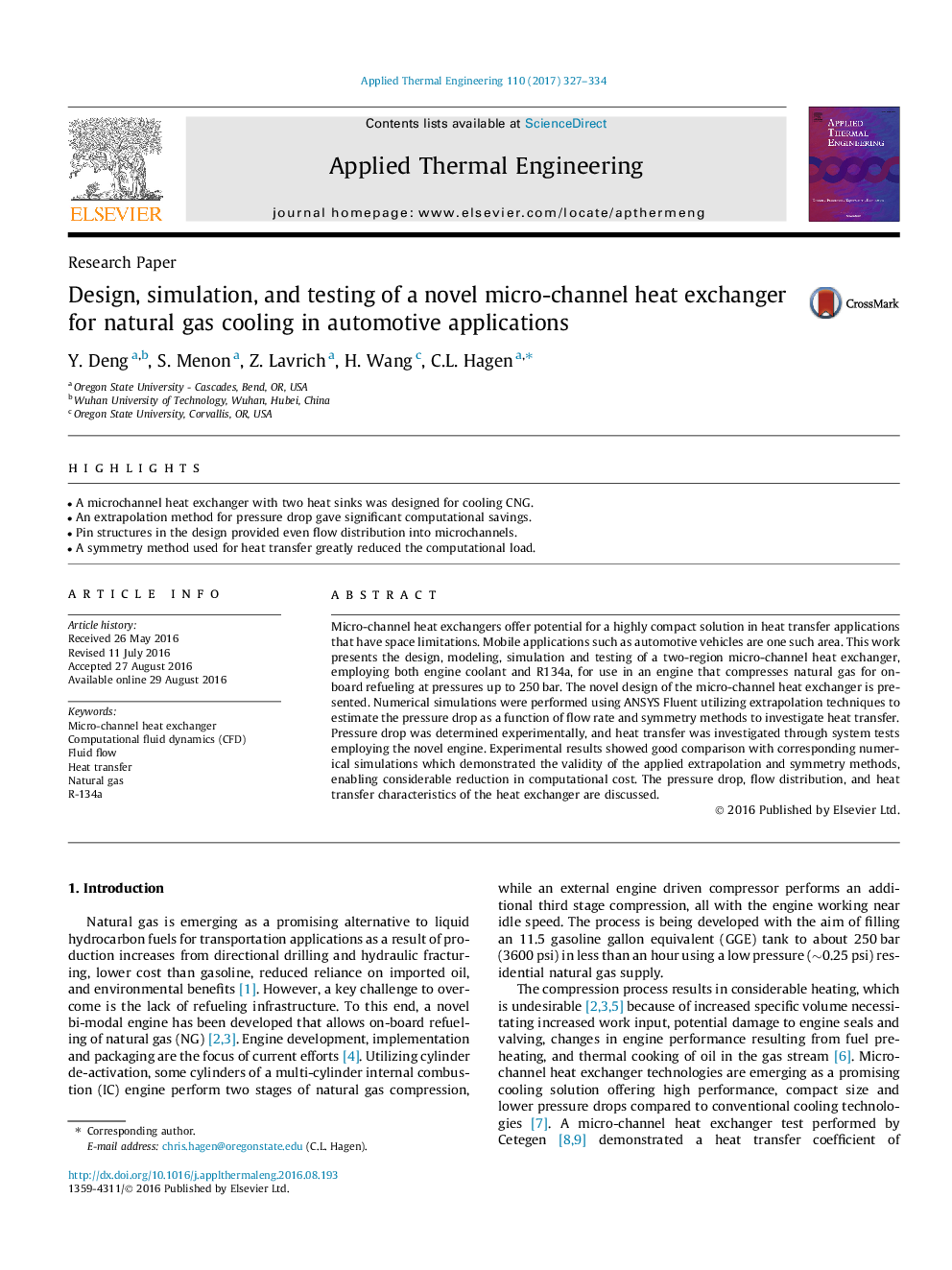| Article ID | Journal | Published Year | Pages | File Type |
|---|---|---|---|---|
| 4992020 | Applied Thermal Engineering | 2017 | 8 Pages |
Abstract
Micro-channel heat exchangers offer potential for a highly compact solution in heat transfer applications that have space limitations. Mobile applications such as automotive vehicles are one such area. This work presents the design, modeling, simulation and testing of a two-region micro-channel heat exchanger, employing both engine coolant and R134a, for use in an engine that compresses natural gas for on-board refueling at pressures up to 250Â bar. The novel design of the micro-channel heat exchanger is presented. Numerical simulations were performed using ANSYS Fluent utilizing extrapolation techniques to estimate the pressure drop as a function of flow rate and symmetry methods to investigate heat transfer. Pressure drop was determined experimentally, and heat transfer was investigated through system tests employing the novel engine. Experimental results showed good comparison with corresponding numerical simulations which demonstrated the validity of the applied extrapolation and symmetry methods, enabling considerable reduction in computational cost. The pressure drop, flow distribution, and heat transfer characteristics of the heat exchanger are discussed.
Keywords
Related Topics
Physical Sciences and Engineering
Chemical Engineering
Fluid Flow and Transfer Processes
Authors
Y. Deng, S. Menon, Z. Lavrich, H. Wang, C.L. Hagen,
